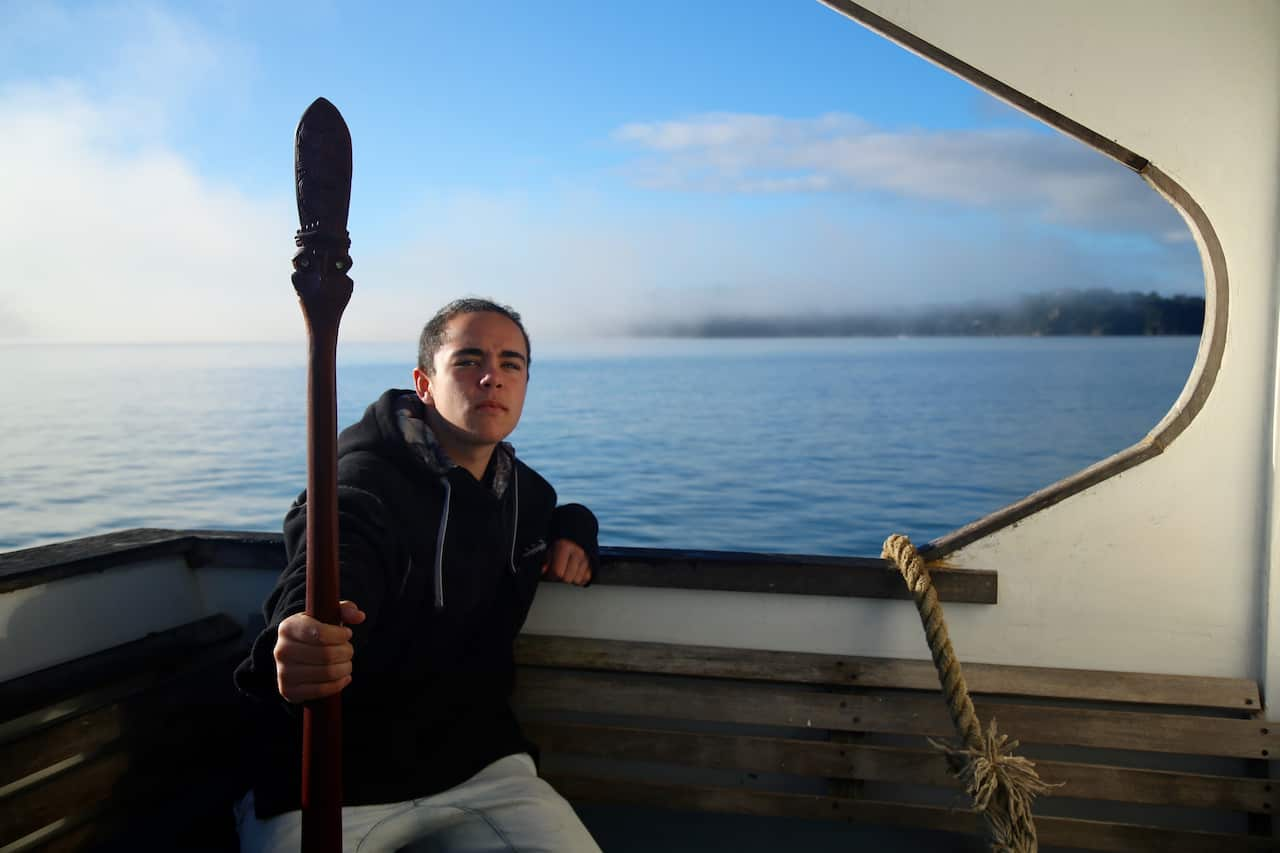“I went off the rails a little bit. I tried to take my life, at the age of 12.”
Fifteen-year-old Eastern Petford-Smith is explaining to Dateline how he almost became another statistic. He was 10 years old when his father died.
“Not having a male role model in my life was really hard,” he says.
“He was tall, tall as. Funny. Great fisherman. Legendary skipper. And a blacksmith … And an awesome dad.
“I didn’t want to be in this world. I hated it … I just wanted to be with him.”
In the episode, The Kids Are Not Alright, to air on Tuesday, the teenager’s story is shown to be one that is increasingly common in New Zealand. A 2017 report from UNICEF listed New Zealand as having the highest teen suicide rate in the developed world – more than double that of Australia.
And while the country’s Māori are famed for their tough, warrior culture, the youth suicide rate among the community is 84 per cent greater than for those who are non-Māori.
UNICEF also reported further stark figures in New Zealand, with high instances of child poverty, teenage pregnancies, and households where no one works.
Eastern’s life continued to spiral in his early teens. A recent brush with the law and the threat of juvenile prison nudged him close to contributing to another figure: New Zealand’s Māori make up 15 per cent of its population but over half of its prisoners.

Reconnecting with culture
Isaiah Apiata, a youth justice coordinator with New Zealand’s Ministry of Children, believes a reconnection to culture can save the country’s Māori from adding to the startling figures.
“I came from nothing. I had nothing,” Isaiah says.
“When she had me, my mother was 17 years of age. Drinking, smoking … gangs.
“That was the normal part of her life.”
Raised by his grandmother, Isaiah was taught ‘tikanga’, traditional Māori values and principles.
“Tikanga at its essence, from what I see, is the ‘rongoa’, the medicine, to fixing up all our whanau [family] that are currently making up the high statistics within New Zealand.”
“What I’m up against is five generations of dysfunctional families.”
Isaiah is working with adolescents like Eastern to instill tikanga and develop a sense of belonging in the land of their ancestors.
“A lot of the work that I do may not even resonate with the young person right here right now … but when something happens in that person’s life, there's gonna be a change. And all these values and principles that I've instilled will eventually flourish,” he says
“And the essence of tikanga is having that strand that associates you personally to your ocean, to your mountain, to your river. To your meeting house. To your family. And gives you that understanding of purpose in life.”
Among the losses felt by Eastern when his father died was his connection to his Māori background.
“I thought about it quite a lot. And I just really wanted to connect with it,” he says.
“And now that Isaiah has got onto my life, it’s a lot better. Knowing where I’m from.”
It’s an impact Isaiah feels can arrest the troubling numbers from his home country.
“If all Māori men had tikanga, I tell you what – we wouldn’t be filling up the prison systems,” he says.
“We wouldn’t be putting our hand out and begging for extra money, for food allowances. We would be running New Zealand.”
Watch the full Dateline report, The Kids Are Not Alright, on Tuesday 25 September at 9.30pm on SBS. The program is available after broadcast via SBS On Demand.
If you need immediate assistance or support contact: Lifeline 13 11 14, lifeline.org.au, or Kids Helpline: 180 55 1800 kidshelpline.com.au
Dateline is an award-winning Australian, international documentary series airing for over 40 years. Each week Dateline scours the globe to bring you a world of daring stories. Read more about Dateline
Have a story or comment? Contact Us


